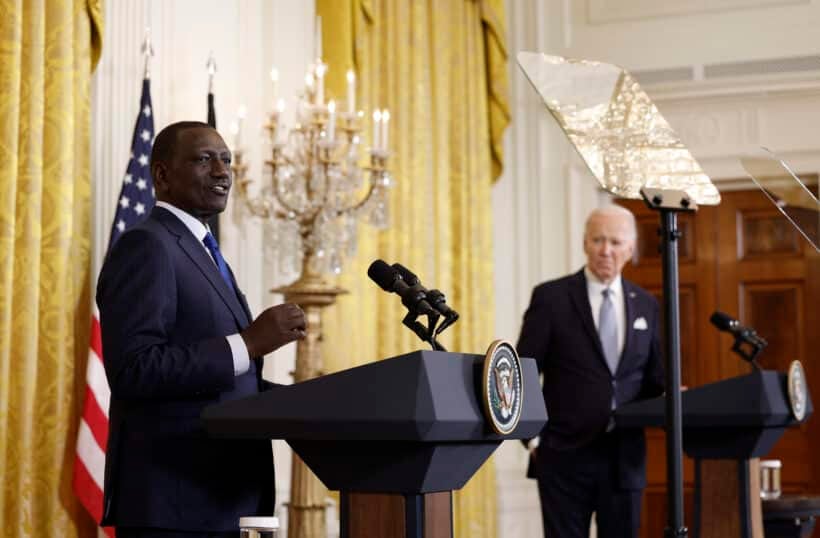
WASHINGTON, May 23 (Reuters) – U.S. President Joe Biden and Kenyan President William Ruto on Thursday called for increased support for developing countries like Kenya, including through debt relief by major bilateral creditors like China.
Biden and Ruto, on a three-day state visit to the United States, issued a “Nairobi-Washington Vision” that includes detailed steps for addressing the staggering debt burden faced by many low-income countries, about half of which are in or close to debt distress.
Many countries are now paying the majority of their revenues to repay debts, limiting their ability to invest in development projects or climate.
“Countries willing to commit to ambitious reforms and high-quality plans for investments in sustainable development and in addressing global challenges like climate change, pandemics and health threats, and fragility and conflict should be buoyed not abandoned by the international community,” the statement for the Nairobi-Washington Vision said.
“High-ambition countries” should receive financial support from international financial institutions, it said, adding that creditor countries should provide reprieves.
China, the United States and other Group of 20 creditor countries set up the Common Framework for Debt Restructuring to help countries facing huge debt burdens during the pandemic, but the initiative has faced long delays.
A senior U.S. Treasury official said China – the largest official creditor – had taken some steps to aid debt-ridden countries, but more work was needed.
The U.S. and Kenya want a big push by the international financial institutions, China and other official bilateral creditors, and the private sector to ensure that debtor countries do not spend all their money servicing old debts.
“We can’t have official creditors free-riding on the rest of the system,” the senior Treasury official said.
Ruto told Reuters last month that Kenya expects a fresh $1 billion disbursement from the International Monetary Fund this month. Chinese loans to Kenya, which surged from around 2013-2022, now account for about 64% of Kenya’s current stock of external bilateral debt.
Commercial external lending also contributed to Kenya’s external debt problem, with a great focus on a $2 billion Eurobond maturing in June 2024.
The U.S. this week sent $250 million in fresh funding for crisis response by the World Bank’s International Development Association, and was working with Congress to provide $21 billion to the IMF’s Poverty Reduction and Growth Trust, the officials said. It is also urging Congress to approve $36 billion to the World Bank.
Washington, the official said, would also work with other Group of Seven advanced economies and Group of Twenty to push for more private investment, coordinated relief packages and reforms at the international financial institutions.
“It’s not just China. … The system needs to operate better,” the Treasury official said.
(Reporting by Andrea Shalal; editing by David Ljunggren and Leslie Adler)

